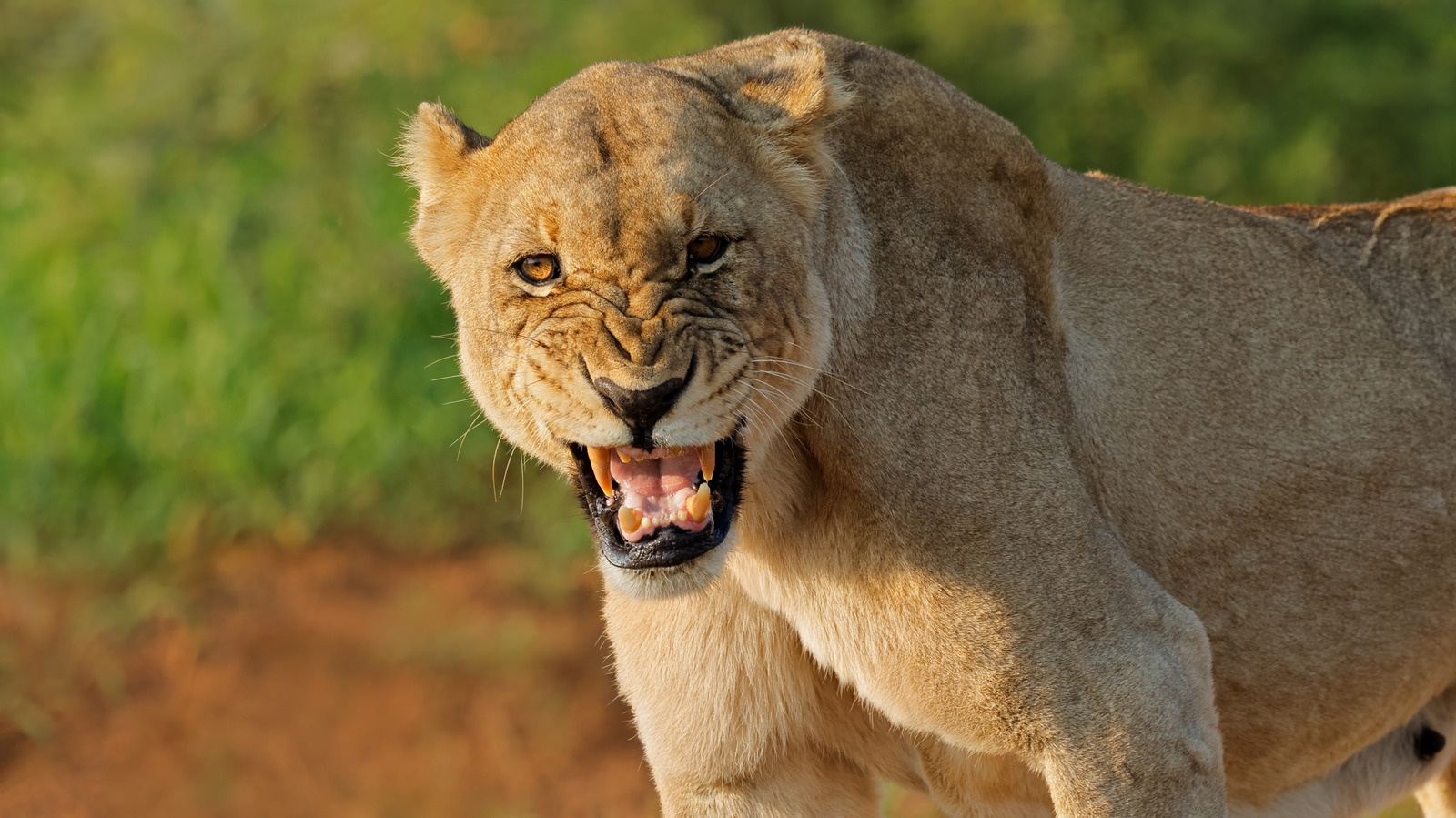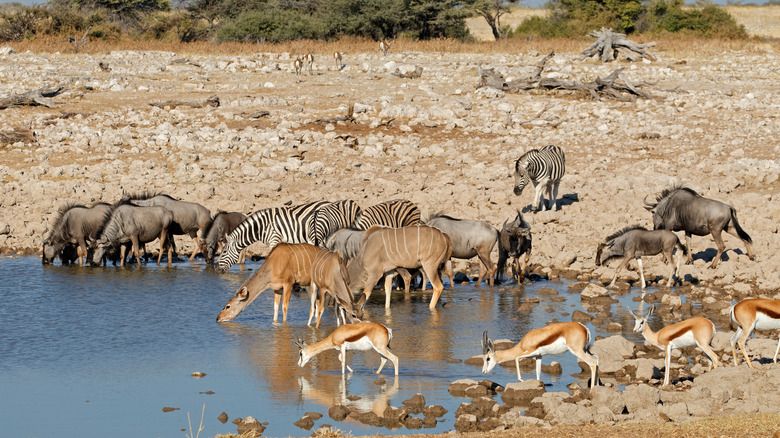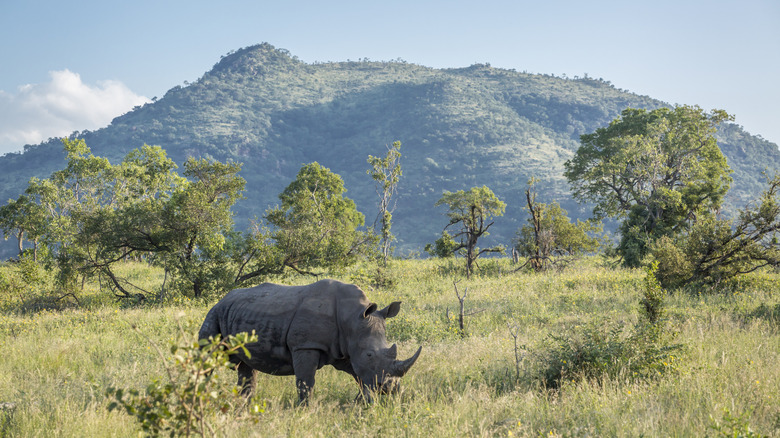In the African savanna, lions are at the top of the food chain. Hunting in groups with their sharp claws and excellent vision, lions are considered the top land predator. Both herbivores and carnivores alike in this region know to be afraid of the lions. However, there is one super predator that these animals fear even more than lions. Humans.
Research done near waterholes used speakers to play sounds for the animals drinking there. The sounds included noises of lions and noises of humans. Animals abandoned the waterholes faster when they heard noises of humans over noises of lions. This research was published in the Current Biology under the title “Fear of the human ‘super predator’ pervades the South African savanna.”
Interestingly enough, it wasn’t the noises of barking dogs or gunshots that scared the animals the most, according to the research. It was simply the sound of human conversation. It scared even animals considered very dangerous to humans, like leopards, hyenas, and warthogs. The researchers believed this implies that the very presence of humans scares animals. This has a negative impact on the African animal observation tourism industry as well as leading to a decreased animal population. It is with good reason the animals are afraid — as we are one of the primary drivers of species getting declared extinct — but there may be a way to use this fear to help protect certain species.
The fear of humans over lions
The research provides compelling data about how much more animals in the African savanna fear humans over lions. The results of the study showed that animals were twice as likely to run away from noises of humans over lions. They also left the waterholes 40% faster in response to the sounds of humans speaking. Animals that reacted in fear to human sounds included rhinoceroses, elephants, giraffes, leopards, hyenas, zebras, kudus, warthogs, and impalas.
One fascinating aspect of this research was that the sounds of human hunting, including noises of guns and dogs, showed the same level of fear or less than the sounds of lions. It was the sounds of humans talking that elicited the strongest fear response. The human conversation noises the researchers used was calm, casual conversation with both male and female voices in local languages.
This fear of humans is not surprising. Illegal hunting and capturing of animals are a frequent problem in Africa. Animals will be killed for their horns or tusks which get sold in medicinal markets, killed for food in rural communities, or captured for use in circuses, tourist attractions, and the illegal exotic pet trade. This affects many of the same species that showed fear of human sounds in the waterhole experiment. Although, when the wealthy go hunting in Africa, sometimes the animals hunt back as in the case of this man being eaten by African wildlife.
Both the good and the bad of this impact
Animals being so afraid of humans can cause problems. Simply fear by itself has been shown to result in decreased prey population growth according to the research authors. It also impacts the tourism industry. People from all over the world come for vehicle tours to safely see these animals in their natural habitats. If animals run away, it impacts the future success of this tourist industry. It is not only bad for commercial purposes, but some of these tours rely on admission for animal and habitat conservation funding.
However, there is one bright side to the fear of humans shared by African wildlife. Despite efforts to curb poaching activities, including the use of the Swedish ultra-quiet electric offroad bike, these illegal activities still persist, and certain animals are still vulnerable. Using the findings of this reserach, conservationists can play the sounds of humans speaking in areas known to be at a high risk for poaching activity. This can assist in efforts to protect endangered animals like the southern white rhino from further population loss by driving the animal away from those areas.












